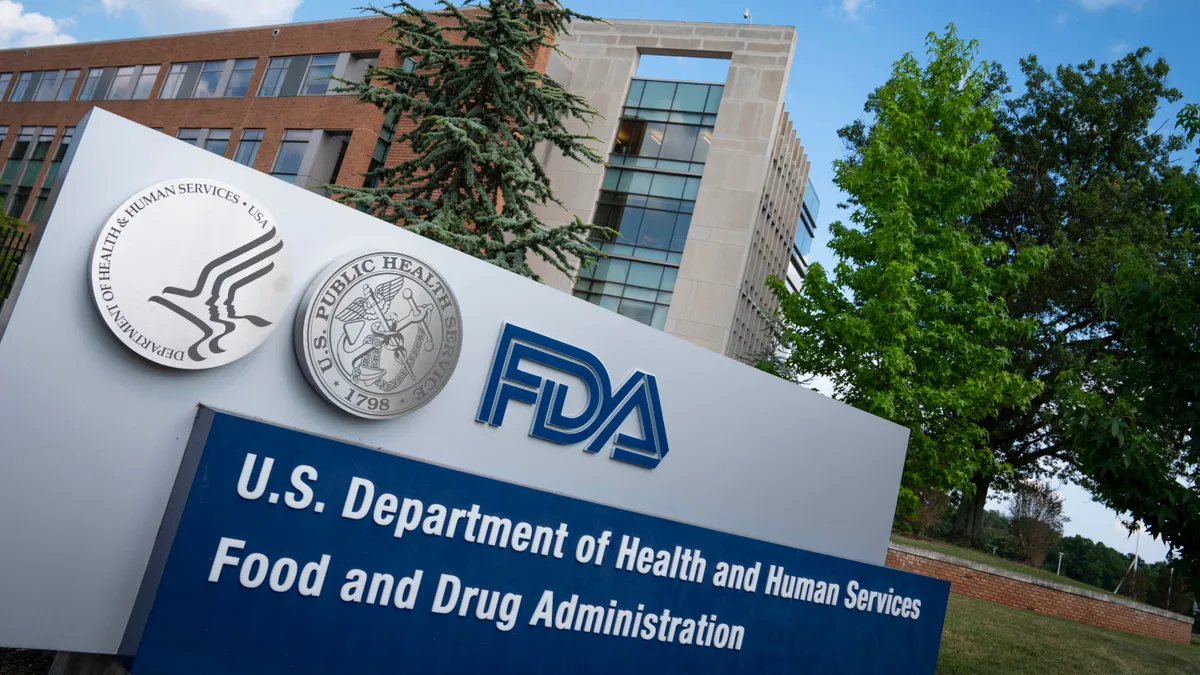Dive Brief:
- FDA is seeking feedback on the process for notifying it of an interruption or the permanent end of the production of a medical device.
- The draft guidance, which is open for comments until Mar. 11, is intended to help manufacturers provide timely information about disruptions during public health emergencies and thereby cut the risk of shortages.
- Congress imposed reporting requirements on device manufacturers as part of the Coronavirus Aid, Relief, and Economic Security Act (CARES Act), which gave FDA authority intended to help prevent or mitigate medical device shortages for the first time. The draft aligns closely with the current policy.
Dive Insight:
Having gained the authority through the 2020 CARES Act, FDA made guidance on the implementation of the reporting requirement one of its top rulemaking priorities for 2022. The agency ticked that item off its list of priorities this week by publishing a 16-page document that sets out who needs to send notifications, when and how they should do so, as well as how FDA determines if a device is in short supply.
In future public health emergencies, FDA may follow the same approach it took to COVID-19 and create a table of device types it thinks will be critical to public health during the crisis. However, the draft leaves the agency room to take other approaches "as appropriate" in future crises.
If manufacturers are unsure whether they need to notify FDA, the draft guidance recommends they evaluate whether their devices are life-supporting, life-sustaining or used in emergency medical care, are used in surgery, or are needed to diagnose, cure, treat, mitigate, or prevent a disease that is related to the crisis. Manufacturers should also consider if the crisis will increase demand for their device.
Manufacturers that meet the criteria must submit notifications at least six months before permanently stopping production or interrupting manufacturing to the extent that there is likely to be a meaningful disruption to supply. When it is impossible to provide six months of notice, manufacturers should notify FDA "as soon as practicable." FDA wants to learn of discontinuation decisions and interruptions within seven calendar days.
Other sections of the guidance cover what information FDA expects manufacturers to submit in the notifications, how to send notifications and the penalties for failing to do so. FDA has also used the draft to outline how it determines what devices are in shortage, explaining that it assesses notifications and other sources of information about supply and demand to make a decision.
The guidance is not intended to replace the text FDA created to help manufacturers file notifications during the COVID-19 pandemic. The agency plans to withdraw the COVID-19-specific document at the end of the coronavirus public health emergency. If the draft document is finalized before the end of the public health emergency, the COVID-19 text will continue to apply to discontinuations related to the crisis.











